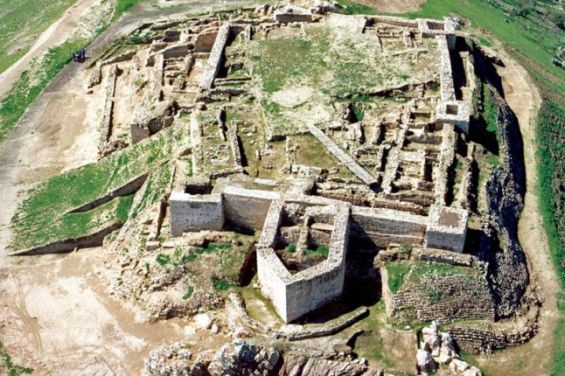
The Battle of Alarcos, fought on July 18, 1195, was a significant confrontation between the Christian forces of the Kingdom of Castile and the Moroccan Muslim Almohad Caliphate. The battle took place near the Castle of Alarcos, close to the modern-day city of Ciudad Real in central Spain.
Background
- Context: During the 12th century, the Iberian Peninsula was divided between Christian kingdoms in the north and Muslim-ruled territories in the south. The Almohad Caliphate, a powerful Muslim dynasty from North Africa, had extended its control over much of southern Spain and was in conflict with the Christian kingdoms.
- Christian Campaigns: Alfonso VIII of Castile had been conducting military campaigns to expand Christian territory at the expense of the Almohads. He aimed to consolidate his power and push further into Muslim-held lands.

Forces Involved
- Christian Army: Led by King Alfonso VIII of Castile, the Christian army consisted of about 12,000 men, including knights, infantry, and mercenaries.
- Almohad Army: Commanded by Caliph Abu Yusuf Yaqub al-Mansur, the Almohad forces were much larger, with estimates ranging from 20,000 to 30,000 soldiers, including Berber cavalry and Andalusian infantry.
The Battle
- Initial Skirmishes: The battle began with skirmishes between the two armies, with the Almohads testing the strength of the Christian forces.
- Main Engagement: The Christian knights launched a fierce charge against the Almohad center, initially making some gains. However, the sheer size and coordination of the Almohad forces soon overwhelmed the Castilian troops.
- Outcome: The Almohads encircled the Christian army, leading to a catastrophic defeat for Alfonso VIII. The Castilian forces were routed, with many soldiers killed or captured. Alfonso VIII himself narrowly escaped with his life, retreating to Toledo.

Aftermath
- Almohad Victory: The Battle of Alarcos was a decisive victory for the Almohad Caliphate, halting the Christian advance and reasserting Muslim control over the region.
- Strategic Impact: The defeat forced the Christian kingdoms to pause their Reconquista efforts and allowed the Almohads to regain some territories in southern Spain. However, the victory was not fully capitalized on by the Almohads due to internal strife and logistical challenges.
- Long-Term Consequences: Despite their victory at Alarcos, the Almohads suffered a devastating defeat at the Battle of Las Navas de Tolosa in 1212, which marked a turning point in the Reconquista, leading to the gradual Christian reconquest of Muslim territories in the Iberian Peninsula.
The Battle of Alarcos remains an important episode in the history of the Reconquista, highlighting the ebb and flow of power between the Christian and Muslim forces during this period.
Was this helpful?
0 / 0







